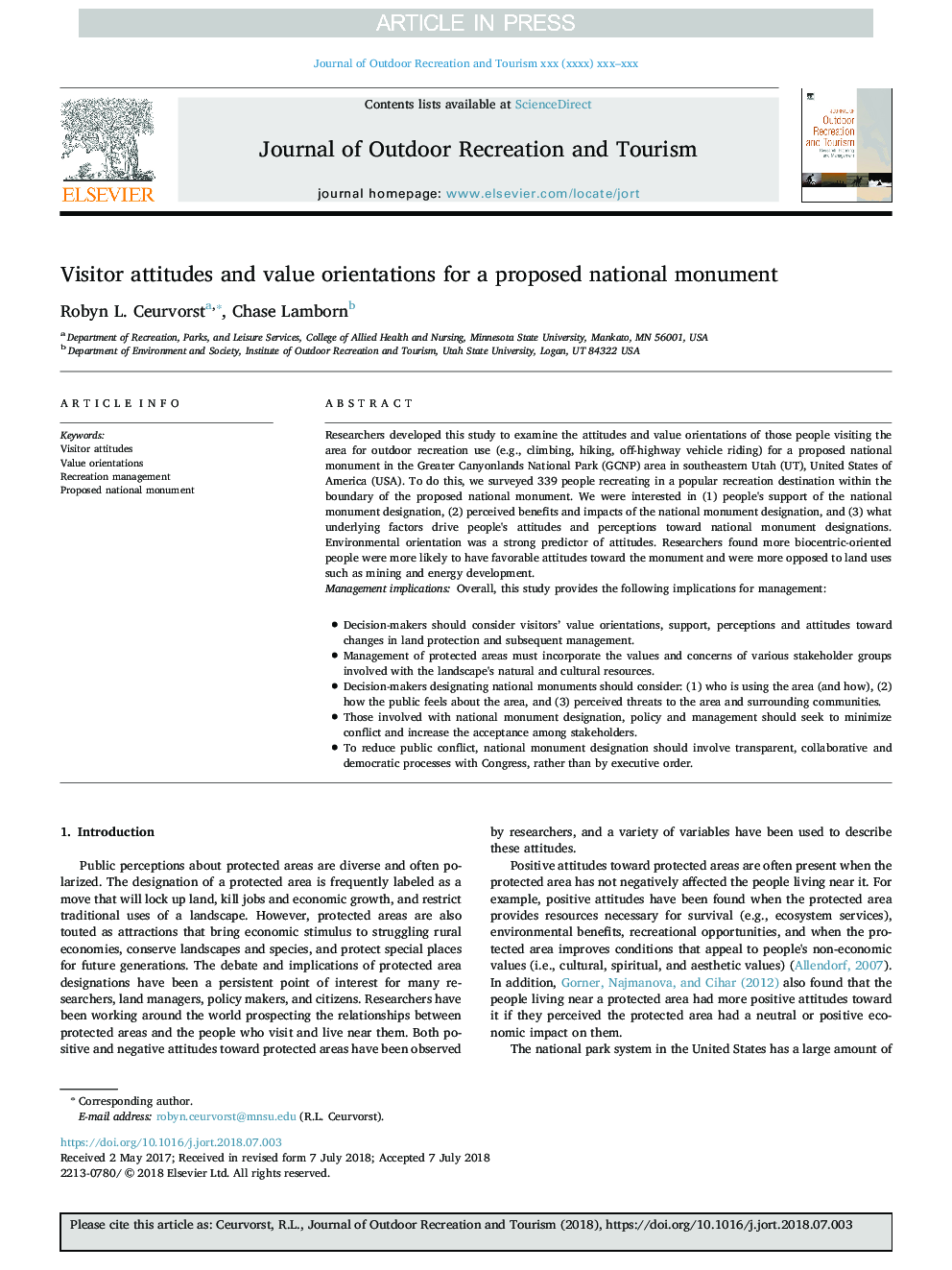| Article ID | Journal | Published Year | Pages | File Type |
|---|---|---|---|---|
| 10150067 | Journal of Outdoor Recreation and Tourism | 2018 | 11 Pages |
Abstract
Researchers developed this study to examine the attitudes and value orientations of those people visiting the area for outdoor recreation use (e.g., climbing, hiking, off-highway vehicle riding) for a proposed national monument in the Greater Canyonlands National Park (GCNP) area in southeastern Utah (UT), United States of America (USA). To do this, we surveyed 339 people recreating in a popular recreation destination within the boundary of the proposed national monument. We were interested in (1) people's support of the national monument designation, (2) perceived benefits and impacts of the national monument designation, and (3) what underlying factors drive people's attitudes and perceptions toward national monument designations. Environmental orientation was a strong predictor of attitudes. Researchers found more biocentric-oriented people were more likely to have favorable attitudes toward the monument and were more opposed to land uses such as mining and energy development.Management implicationsOverall, this study provides the following implications for management:
- Decision-makers should consider visitors' value orientations, support, perceptions and attitudes toward changes in land protection and subsequent management.
- Management of protected areas must incorporate the values and concerns of various stakeholder groups involved with the landscape's natural and cultural resources.
- Decision-makers designating national monuments should consider: (1) who is using the area (and how), (2) how the public feels about the area, and (3) perceived threats to the area and surrounding communities.
- Those involved with national monument designation, policy and management should seek to minimize conflict and increase the acceptance among stakeholders.
- To reduce public conflict, national monument designation should involve transparent, collaborative and democratic processes with Congress, rather than by executive order.
- Decision-makers should consider visitors' value orientations, support, perceptions and attitudes toward changes in land protection and subsequent management.
- Management of protected areas must incorporate the values and concerns of various stakeholder groups involved with the landscape's natural and cultural resources.
- Decision-makers designating national monuments should consider: (1) who is using the area (and how), (2) how the public feels about the area, and (3) perceived threats to the area and surrounding communities.
- Those involved with national monument designation, policy and management should seek to minimize conflict and increase the acceptance among stakeholders.
- To reduce public conflict, national monument designation should involve transparent, collaborative and democratic processes with Congress, rather than by executive order.
Related Topics
Life Sciences
Agricultural and Biological Sciences
Forestry
Authors
Robyn L. Ceurvorst, Chase Lamborn,
